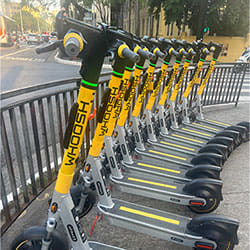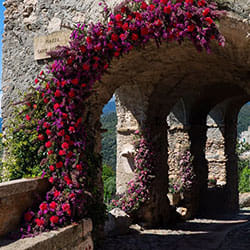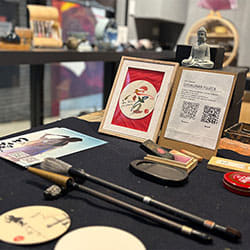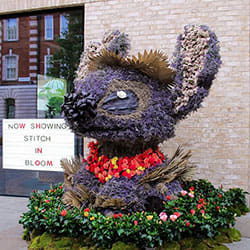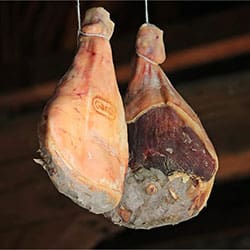I’ve lived in Italy for about twenty years now. The deeper I dig into its history, literature, politics, and customs the more I realize how much I have left to learn.
One of the great things about Italy is the number of historical buildings and important cultural properties that have been preserved to this day—so you can actually see the country’s history with your own eyes and experience it firsthand. I think it’s Rome where they have a McDonald’s built in a historical district, and when you go there are ancient frescos or mosaics on the walls that themselves make it worth a visit. I remember how amazed I was at hearing that and how fresh and different it seemed.
Dante’s Divine Comedy is one of the masterpieces of Italian literature, and familiar to most everyone in the world—not just the Italians. It was written as the Italian language was taking shape, and has a deep connection to Christian values. It is revered even today, so much so that you’ll often hear people quoting it in the course of daily conversation.
I grew up having no interest in politics, but Italian politics are… if not interesting, then certainly impossible to ignore. Maybe it’s the country’s long, tumultuous history of repeated victories and defeats, but heated political discussions—which are played out daily on TV programs—will keep you on the edge of your seat better than any dramatic film.
Italy has a reputation for being a free-spirited country, but I’ve come to realize that its customs can be surprisingly regimented. Mealtimes is one example. If you don’t eat within a certain window, you risk not being able to eat at all, so I end up stressed in a way I never was in Japan. I was also amazed to hear children asking their parents what the first (primo) and second course (secondo) were that day like it was the most normal thing in the world. The primo is usually pasta or some kind of carbohydrate, while the secondo is typically a meat or fish dish with a side of vegetables. Both parents work in most modern Italian households, but home-cooked meals still manage to have courses like a restaurant!?
Italian history, culture, politics, and customs can be superficial in one sense, but the more I’ve come to understand them and the everyday happenings that have taken place over the last twenty years, the more I’ve become immersed in the culture and have started to live an Italian lifestyle myself. I do have one issue, though, that I have very strong feelings about. It has been a constant thorn in my side for the twenty years I’ve been here and I see no hope of it getting any better in the future.
It’s the plugs.
There are several different kinds of plugs, and I am so fed up with them that just the thought of explaining how they all go together makes me want to give up before I start. In general there are two categories: the type C plug and something they call a German plug. Either way, you’re not going to just come home with some electronic appliance you bought and start using it right away. You’ve got to go through your entire house and try all the outlets to find ones that will match the plug you have. You might even have to go back to the electronics store to buy an adapter, but there are just too many different kinds of adapters to go between appliances and wall outlets for me to even get my mind around it…

COME ON ITALY get it together with the plugs already!!













